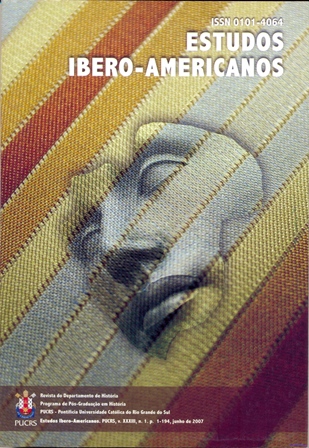New State: the end of regional policies?
DOI:
https://doi.org/10.15448/1980-864X.2007.1.2245Keywords:
Estado Novo, Regional politics, InterventoriasAbstract
Brazilian republican history is generally divided between before and after Vargas Era, landmark of the end of the “archaic Brazil”, ruled by traditional oligarchies regionally based, and the “modern Brazil”, characterized by the adoption of universal social proceedings and ideals of political order and national unity. Nevertheless, this paper aims to demonstrate that Brazil should rather be considered as a synchretic society, like defined by Edson Nunes. It means that archaism and modernity constantly interacted with each other, even though Vargas’ government intended to put into operation some reforms to establish the universality of political-administrative procedures. During this time, the autonomy of regional politics was in fact restricted, but new channels of influence in federal government allowed traditional oligarchies to keep power in their political supporting basis.Downloads
Downloads
Published
How to Cite
Issue
Section
License
Copyright
The submission of originals to Estudos Ibero-Americanos implies the transfer by the authors of the right for publication. Authors retain copyright and grant the journal right of first publication. If the authors wish to include the same data into another publication, they must cite Estudos Ibero-Americanos as the site of original publication.
Creative Commons License
Except where otherwise specified, material published in this journal is licensed under a Creative Commons Attribution 4.0 International license, which allows unrestricted use, distribution and reproduction in any medium, provided the original publication is correctly cited.






